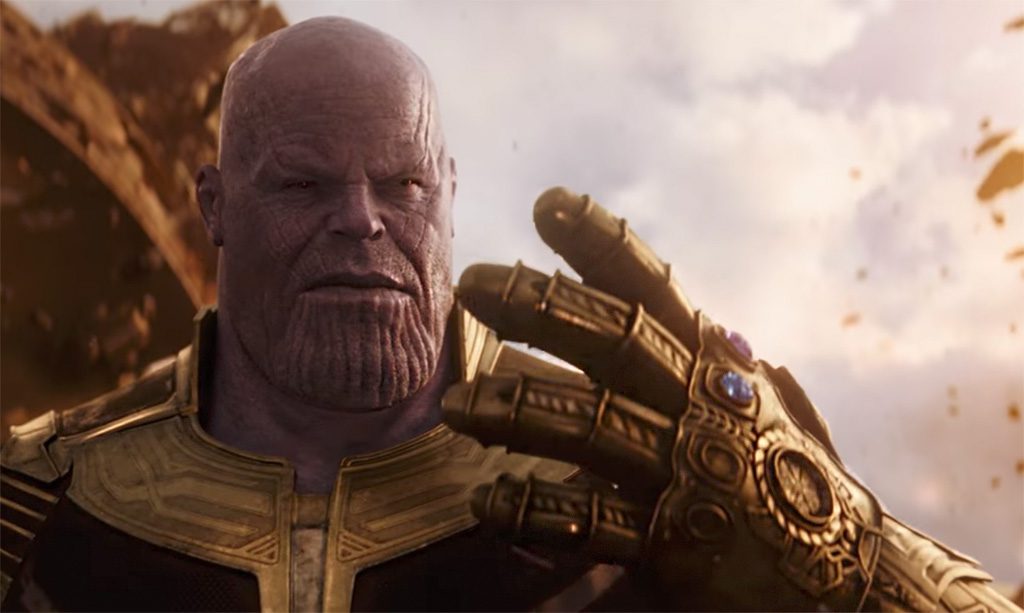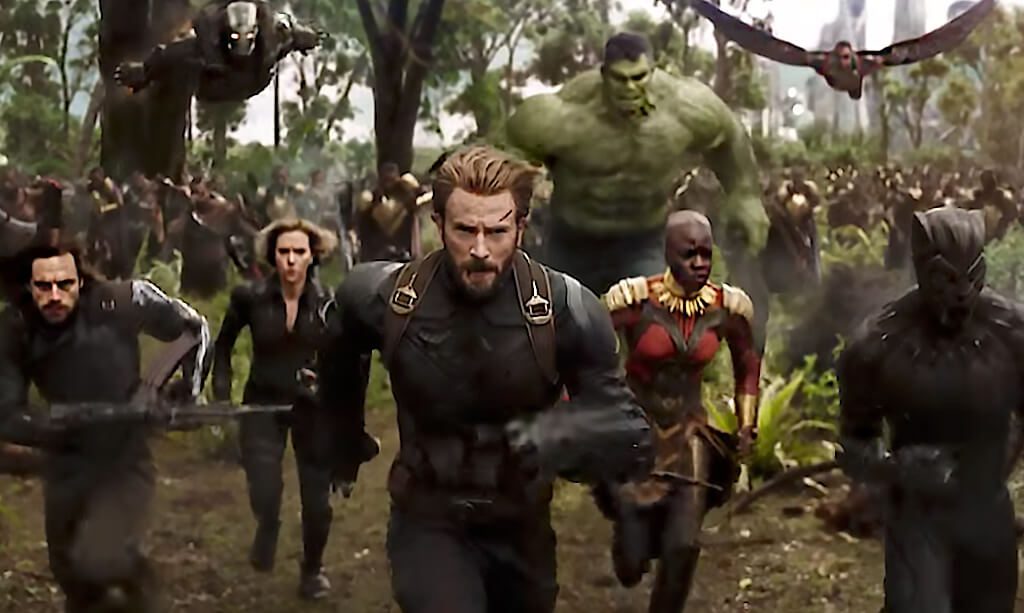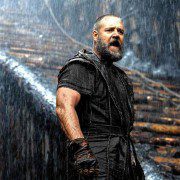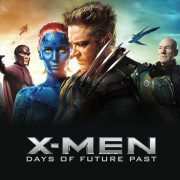Avengers: Infinity War and the value of life and unity
Rating: 4.5 out of 5
Screenshots taken from Official Trailer
Written By Simon Moetara, New Zealand
The Dark Lord Thanos has finally revealed himself in the Marvel Cinematic Universe, and it will take the combined might of the Avengers to stop his genocidal plans of destroying half of all life in the universe.
Avengers: Infinity War (2018) is the culmination of 10 years and 18 films (starting back in 2008 with Iron Man), and it embodies an ambitious and epic scope unseen before on screen, bringing together numerous storylines with more than 70 characters working across multiple worlds across the universe.
Thanos is Marvel’s greatest cosmic threat (save for perhaps Galactus, the colossal “Devourer of Worlds,” who dines on the life energy of entire planets). It’s a brilliant and emotive portrayal by Josh Brolin, as good a CGI performance as anything Andy Serkis has delivered, such as Gollum/Smeagol in LOTR, or the brooding Caesar in the Planet of the Apes trilogy.
We first see his purple visage smiling out at us in a post-credit sequence in the first Avengers film, but he has been standing on the fringes of all the action so far, watching from a distance, manipulating events, and biding his time. And now the Mad Titan has stepped out from the shadows and arrived center-stage. As one writer put it, He is “the coming storm, the creeping death, the threat of apocalypse and Armageddon, oblivion and omega.”
The massive Titan warlord wants the dimension-controlling Infinity Stones, six artefacts of inconceivable power that were forged into concentrated existence at the beginning of the universe, and to use them to enforce his despotic will on all of reality. At the start of Infinity War, he has one of the stones in his Infinity Gauntlet; but he needs the other five to put his twisted “plan of salvation” into action. Driven by an insane utilitarianism, inspired by a crazy cosmic pragmatism, Thanos desires to alleviate overpopulation, lack of resources, and suffering by randomly destroying half of all life in order to bring “balance” to the universe. Thanos isn’t intentionally cruel. He derives no pleasure from decimating civilizations. He actually thinks he’s helping people by randomly snuffing out billions of lives.
And against this megalomaniacal plan is arrayed Earth’s mightiest heroes: Asgardians, aliens, and androids. Scientists and soldiers. Spies and sorcerers. The philosophy of the heroes is quite different to that of the Titanic purple bad-guy. When android Vision suggests destroying the Mind Stone in his forehead (which would mean his own death) Captain America Steve Rogers responds, “We don’t trade lives.” This reflects the heroic stance.
The Value of Life and the Power of Love
When challenged with a worldview that says life is meaningless when confronted with the vastness and the fate of the universe, the heroes uphold that every individual life is precious. As Christian blogger Logan Judy says, “Super-hero stories have a way of becoming life-affirming stories.” In a world filled with suffering, the Avengers insist on the value of life.
Whenever we take a distant view, seeing human beings as economic units or mere numbers, it’s easy to be dismissive and to de-humanize others. But this is far from the depiction of humanity and of God in Scripture. First, every person in this world is a precious being, bearing the image of God (Gen 1:26-27). As Bible scholar John Stott declares, “It is the divine image in man which gives him an intrinsic dignity or worth, a worth which belongs to all human beings by creation, regardless of race, religion, color, culture, class sex or age.” Such a belief affirms the value of every individual life.
Second, the God in Scripture is both powerful and good, both transcendent and immanent. Christian author David Jackman notes the difficulty of speaking meaningfully of God’s love when we think of this “grubby tennis ball” of a planet, set in the vast infinity of space, our own lives as mere blips in the ever-onward surge of time, and our own individuality among countless billions. Or when we consider the world with all its evil and suffering and so many damaged lives.
Yet the apostle John tells us that the very nature of God is love (1 John 4:8). Jackman declares that, “we must realize that such an infinite yet personal Creator is not too great to be bothered with my tiny life. He is so great that he can be bothered with each of us individually.” As the early church theologian Augustine of Hippo said of God in his Confessions, “You are good and all-powerful, caring for each of us as though the only one in your care, and yet for all of us as for each individual.”
Notwithstanding Thanos’ god-like powers, his followers’ references to him as “almighty Thanos” and “Father,” and his references to others as “child” or to his plan of “salvation,” he leaves a lot to be desired in a deity. To invoke C.S. Lewis’ famous description, Thanos may be powerful, but he isn’t good.

Unity is Paramount
And so the heroes of the MCU must stand together against the growing power of Thanos. But at the start of Infinity War there is friction, and factions, and egos clash. Stark and Dr Strange butt heads. Thor and Starlord don’t see eye to eye. Secretary of State General Ross still sees Captain America and his crew as fugitives. Thor is wounded after the destruction of Asgard in Thor: Ragnarok (2017). James Rhodes (War Machine) is still recovering from injuries suffered in Civil War (2016).
Thanos is an adversary so powerful that you really think he might succeed. If the Avengers are to have any chance of stopping him, they must be united. The things that unite come first; that which divides can follow.
Can Stark put aside past hurt and betrayal? Can Stark and Strange set aside their monumental egos? Can the Avengers unite after being torn apart over the differences that led to Civil War? And can they stop the Mad Titan from getting his hands on the Infinity Stones and wiping out half of all known life?
Our heroes all show courage and a willingness to sacrifice themselves for the sake of those who cannot defend themselves. However, the desire for unity is paramount in the story. It’s present in the catch-cry “Avengers Assemble”, reflecting the truth of the old adage: united we stand, divided we fall. These are very real flesh-and-blood characters, with their own pride and pain and ideals and values, but to see them all battle to overcome their individual issues and strive for the sake of others is incredibly moving.
The idea of unity is a powerful theme for God’s people (Ps 133:1). They too “assemble” as the ekklessia, the “called out ones,” i.e. the church. God desires us to reach unity in the faith (Eph 4:13) and to live in love, which “binds all things in unity” (Col 3:14). Our deep love for another “covers a multitude of sins” (1 Pet 4:8) and allows us to remain in powerful and united community, and to stand in unity against all the things that would seek to drive us apart and destroy us.
Even though it’s 160 minutes in length, the story travels along at an action-packed break-neck pace. This film is really Part 1, with Part 2 to come in May 2019. Whatever happens, the Avengers will need to assemble, to come together, and persevere in unity if they’re to stand against the growing destructive might of Thanos.









Leave a Reply
Want to join the discussion?Feel free to contribute!